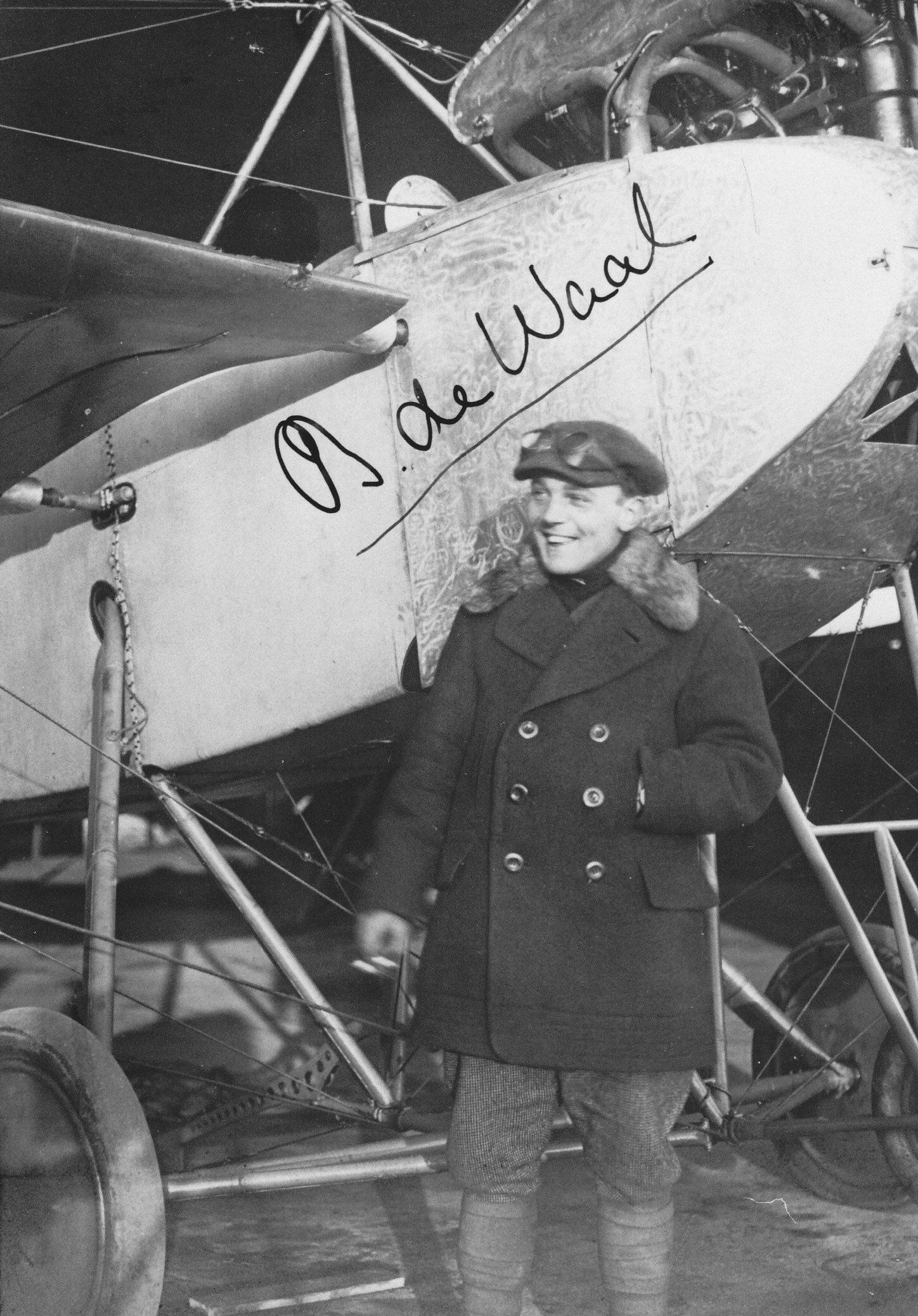Bernard de Waal
One of the first test pilots was Bernard de Waal from Arnhem, who is also a personal friend of Anthony Fokker.
Bernard obtained his pilot's license (no. 255 of the Deutsche Luftfahrer-bandage) on a Goedecker monoplane in Germany on July 15, 1912.
Shortly afterwards he was appointed chief aviator at the aircraft factory of Jacob Goedecker, at the airport in Gonsenheim-Mainz.
Flight school
When Fokker started building his Spiders in Johannistahl, Germany in 1912, he also established a flying school there.
The Fokker flight school was intended to train prospective (military) pilots, so that they could fly the aircraft when they had been bought and transferred.
Both factory and flight school were moved to Schwerin-Görries in Mecklenburg.
At the beginning of 1913, Fokker's flight school consisted of 25 employees and Fokker was looking for someone to take charge of the flight school so that he could focus more on the aircraft construction.
He found it in the person of Bernard de Waal, who made the switch from Goedecker to Fokker.
In March 1913, the Waal entered service with the Fokker Aeroplanbau, first as test pilot and not long after that, he was in charge of the flight school.
Test flights
Bernard de Waal was an excellent pilot and was often the second (after Anthony Fokker himself) to make various test flights with the Spiders, the Spin variants and later with the M-types.
Even if existing aircraft had undergone changes to improve flight characteristics, it was the Waal that made a number of flights to assess those changes.
Later, the Waal was also responsible for the so-called acceptance flights, a last flight of an airplane before it was delivered to a customer.
Fokker F.2
In 1920, the Waal brought a Fokker F.2 from Schwerin to the Netherlands, this had to be done in secret.
Fokker was already based in Amsterdam and the export of aircraft from Germany was forbidden by the Allies.
After three stopovers, the plane was eventually transported by ship to Amsterdam.
Bernard de Waal literally stayed with Fokker until his death, he died suddenly on July 28, 1924 after an illness.
Bernard obtained his pilot's license (no. 255 of the Deutsche Luftfahrer-bandage) on a Goedecker monoplane in Germany on July 15, 1912.
Shortly afterwards he was appointed chief aviator at the aircraft factory of Jacob Goedecker, at the airport in Gonsenheim-Mainz.
Not only land planes were flown by the Waal: with one flying boat built at Goedecker, he took part in the "Erste Deutsche Wasserflugmaschinen-Wettbewerb" which took place from August 29 to September 5 in Heiligendamm and received a consolation prize of 3,000 marks.
When Fokker started building his Spiders in Johannistahl, Germany in 1912, he also established a flying school there.
The Fokker flight school was intended to train prospective (military) pilots, so that they could fly the aircraft when they had been bought and transferred.
Both factory and flight school were moved to Schwerin-Görries in Mecklenburg.
At the beginning of 1913, Fokker's flight school consisted of 25 employees and Fokker was looking for someone to take charge of the flight school so that he could focus more on the aircraft construction.
He found it in the person of Bernard de Waal, who made the switch from Goedecker to Fokker.
In March 1913, the Waal entered service with the Fokker Aeroplanbau, first as test pilot and not long after that, he was in charge of the flight school.
Test flights
Bernard de Waal was an excellent pilot and was often the second (after Anthony Fokker himself) to make various test flights with the Spiders, the Spin variants and later with the M-types.
Even if existing aircraft had undergone changes to improve flight characteristics, it was the Waal that made a number of flights to assess those changes.
Later, the Waal was also responsible for the so-called acceptance flights, a last flight of an airplane before it was delivered to a customer.
In 1920, the Waal brought a Fokker F.2 from Schwerin to the Netherlands, this had to be done in secret.
Fokker was already based in Amsterdam and the export of aircraft from Germany was forbidden by the Allies.
After three stopovers, the plane was eventually transported by ship to Amsterdam.
Bernard de Waal literally stayed with Fokker until his death, he died suddenly on July 28, 1924 after an illness.


